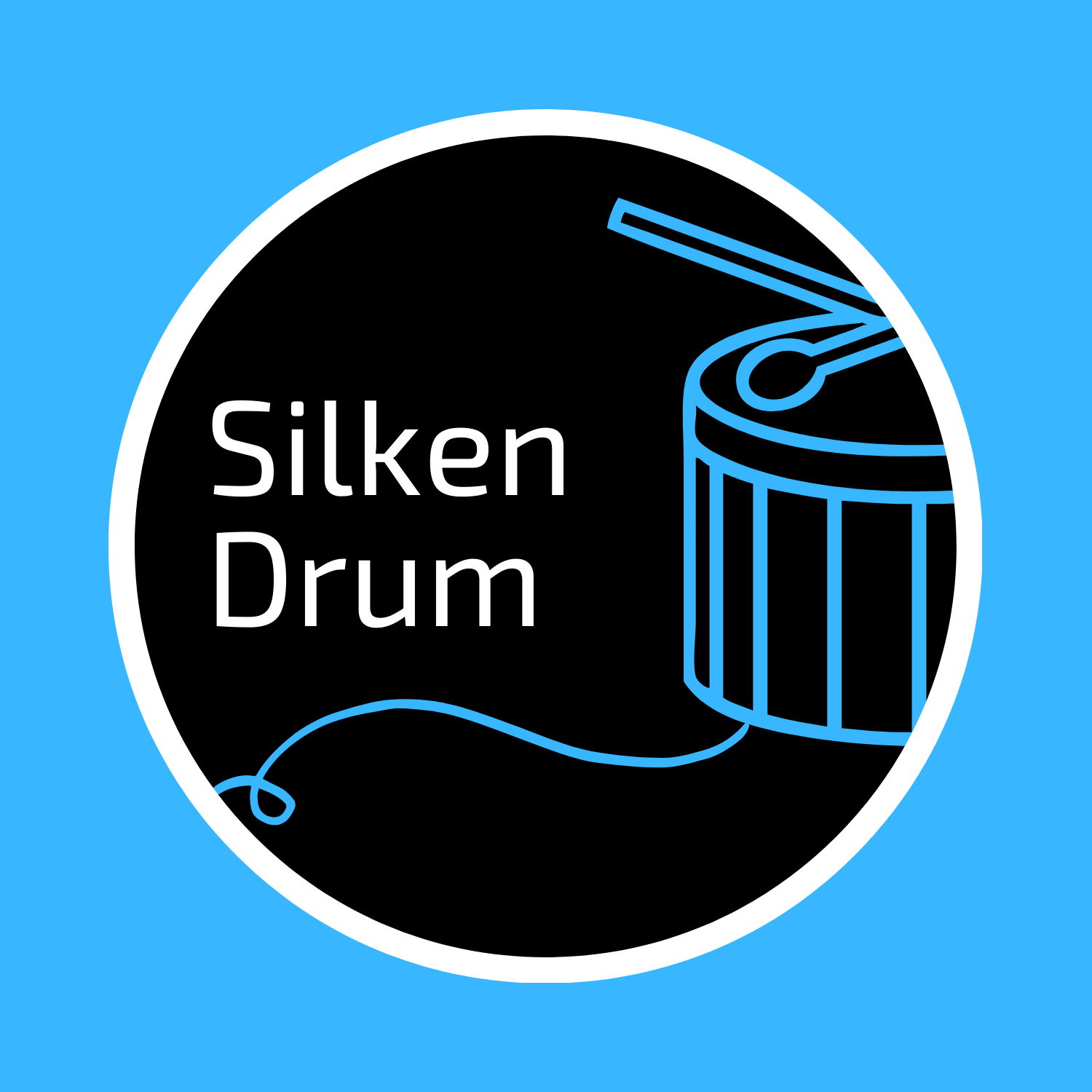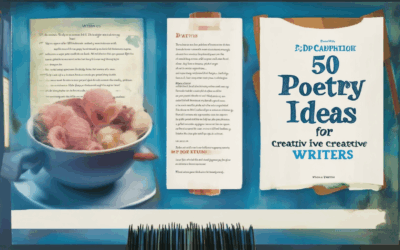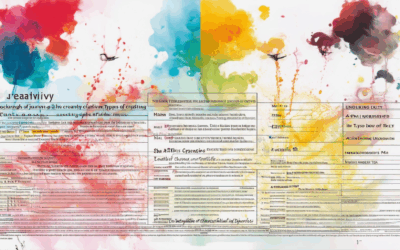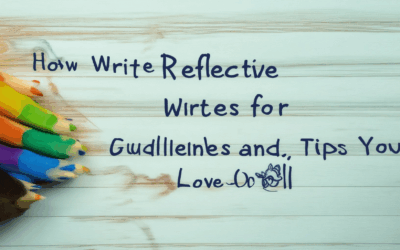Exploring the world of poetry and essays can be both exhilarating and overwhelming, especially when trying to find the perfect topics to engage your readers. For aspiring writers, discovering the best poetry and essay blog topics is essential to enhance your writing skills and connect with your audience. Whether you’re sharing personal reflections, fictional stories, or insightful analyses, selecting the right topics can elevate your blog to a trusted resource for readers seeking inspiration and guidance. In this article, we’ll explore what makes a great poetry and essay blog, share tips for crafting engaging content, and provide actionable advice for creating a blog that stands out. From understanding the best themes to leveraging WordPress plugins, we’ll guide you through the process of building a compelling poetry and essay blog that resonates with readers and supports your writing journey.

Best Poetry and Essay Topics for Aspiring Writers
Discover a curated list of thought-provoking poetry and essay topics designed to inspire creativity and deepen your writing skills. These themes are crafted to spark imagination and encourage meaningful exploration:
- Personal Reflections
- Write about a significant life event that shaped your perspective.
- Reflect on a personal struggle or triumph and its impact on you.
- Describe a moment when you felt deeply connected to your surroundings.
- Social Issues and Current Events
- Explore the consequences of climate change on communities.
- Analyze the role of technology in modern society.
- Discuss the importance of mental health awareness and support systems.
- Nature and Environment
- Describe a day in the life of a forest or mountain ecosystem.
- Reflect on the relationship between humans and animals.
- Write about a personal experience in a natural setting that inspired you.
- Historical Figures and Their Impact
- Research and write about a historical figure’s contributions to society.
- Examine the legacy of a controversial historical figure.
- Compare the lives of two historical figures and their influence today.
- Everyday Objects and Their Stories
- Write a poem or essay about a common object and its significance.
- Describe how a single item has impacted your daily life.
- Explore the history and evolution of a particular artifact or tool.
- Mythology and Folklore
- Reimagine a classic myth in a modern context.
- Investigate the origins and meanings behind popular folklore.
- Compare mythological characters to real-life historical figures.
- Food and Culture
- Write about the cultural significance of a traditional dish.
- Describe a unique food experience and its sensory impact.
- Explore the history of a particular cuisine and its global influence.
- Technology and Innovation
- Speculate on the future of artificial intelligence and its societal effects.
- Describe a groundbreaking technological advancement and its impact.
- Compare the pros and cons of technological innovations in daily life.
- Art and Literature
- Write about a famous artwork and its historical context.
- Reflect on the influence of a literary masterpiece on modern culture.
- Compare the styles of two renowned artists or authors.
These topics are perfect for sparking creativity and helping you explore deeper themes. Whether you’re writing poetry or an essay, these ideas will challenge you to think critically and express yourself authentically. Visit Silken Drum for more resources and inspiration for writers.
How to Write Engaging Poetry and Essay Blogs
Writing engaging poetry and essay blogs requires a blend of creativity, technique, and authenticity. Here are some proven methods to captivate your audience and elevate your writing:
1. Choose a Compelling Theme or Topic
Select a theme or topic that resonates with your audience. Whether it’s a personal reflection, a social issue, or a fictional narrative, ensure it’s something that sparks curiosity and emotion. Consider conducting research to deepen your understanding and add unique insights.
2. Craft Vivid Imagery and Metaphors
Engage readers by painting vivid pictures with descriptive language. Use metaphors and similes to transform abstract concepts into relatable scenes. For instance, describe a sunset as “a canvas of oranges, pinks, and purples” rather than simply stating it’s beautiful.
3. Develop a Strong Voice
Your unique voice is what makes your writing stand out. Speak directly to your readers, share personal anecdotes, or express strong opinions thoughtfully. Consistency in tone helps establish trust and keeps your audience engaged.
4. Edit and Refine Thoughtfully
Good writing often requires revisiting and refining. Edit to remove unnecessary words, tighten sentences, and ensure clarity. Seek feedback from others or use tools like grammar checkers to polish your work.
5. Stay Authentic and True to Yourself
Authenticity builds connections with readers. Write about what you’re passionate about and be honest about your experiences. Sharing imperfections adds relatability and makes your work more genuine.
6. Engage Readers with Interactive Elements
Incorporate interactive elements like prompts, questions, or calls to action to encourage engagement. For example, ask readers to share their thoughts on a topic or invite them to explore further resources on your website.
7. Utilize Tools and Resources
Leverage tools like Silken Drum’s resources, writing workshops, or online communities to improve your skills. Platforms like Silken Drum offer valuable insights and inspiration for writers.
8. Maintain Consistency and Frequency
Consistent publication builds loyalty among readers. Set a schedule for posting and stick to it, whether it’s weekly, bi-weekly, or monthly. Regular updates keep your audience invested in your work.
9. Analyze and Adapt to Feedback
Listen to your readers’ feedback and adapt your writing accordingly. Track metrics like engagement rates and adjust your topics or styles based on what resonates most with your audience.
10. Explore Multiple Formats
Experiment with different formats like poetry, personal essays, and narrative non-fiction. Each format offers unique opportunities to showcase your talents and cater to diverse audiences.
By implementing these strategies, you can create blogs that not only entertain but also inspire and connect with your readers on a deeper level. Remember, the key to success lies in consistency, authenticity, and a willingness to grow.

What Makes a Great Poetry and Essays Blog?
A great poetry and essays blog is defined by several key attributes that set it apart from the rest. These qualities not only attract readers but also foster a loyal community of engaged followers. Here’s what makes a poetry and essays blog truly exceptional:
- High-Quality, Thought-Provoking Content :
A great blog consistently publishes content that challenges and inspires. Whether it’s poetry that resonates emotionally or essays that spark deep reflection, the material should feel meaningful and impactful. Silken Drum excels in this area by featuring works that provoke thought and connect with readers on a personal level. - Organized and Accessible Categories :
Good blogs categorize their content to make it easier for readers to find what they’re looking for. Silken Drum organizes its posts into sections like “Featured Poets,” “Essays on Life,” and “Creative Insights,” ensuring visitors can explore topics that interest them without feeling overwhelmed. - Engaging Interactivity :
Interaction is key to building a strong community. Silken Drum encourages engagement through comment sections, discussion forums, and guest posting opportunities. This fosters a sense of belonging among readers and writers alike. - SEO and Relevance :
A successful blog understands the importance of SEO. Silken Drum employs effective strategies to ensure its content ranks well in search engines, making it discoverable to a wider audience. Regular updates and optimized keywords contribute to its visibility. - Unique Angles and Perspectives :
What sets a great blog apart is its ability to offer fresh perspectives. Silken Drum often features works that take unconventional approaches to traditional themes, offering readers something unique and valuable. - Multimedia Appeal :
Enhancing content with audio or video elements can elevate a blog’s appeal. While Silken Drum primarily focuses on text-based content, it occasionally includes podcasts and video interviews, adding variety and engagement. - Responsive Design :
A great blog ensures its content is accessible on all devices. Silken Drum’s responsive design allows readers to enjoy its articles seamlessly on desktops, tablets, and mobile phones.
By combining these elements, Silken Drum creates an inviting space for literary enthusiasts to explore and connect with each other. Its commitment to quality, community, and innovation makes it a standout in the world of poetry and essays blogging.

How to Create a Compelling Poetry and Essays Blog
To establish a successful poetry and essays blog, follow these steps to craft a captivating platform that resonates with readers and stands out in the digital landscape.
1. Define Your Niche and Brand Identity
Your blog’s success begins with a clear focus. Decide whether you want to specialize in a specific type of poetry, such as slam poetry or haiku, or combine poetry with personal development themes. Consistency in tone and style helps build recognition and trust among your audience.
2. Commit to High-Quality Content
Publish regularly and ensure each piece demonstrates exceptional craftsmanship. Whether it’s a heartfelt poem or an insightful essay, aim to provide value that resonates emotionally and intellectually. Incorporate SEO-friendly keywords naturally in your titles and headings to enhance visibility without compromising readability.
3. Engage Readers Through Interaction
Foster a community by inviting comments and feedback on your posts. Consider featuring guest posts from fellow writers or hosting writing contests to inspire engagement. Sharing personal anecdotes or insights adds a relatable touch and strengthens your connection with readers.
4. Explore Monetization Strategies
Once your audience grows, explore ways to monetize your blog. Affiliate marketing for recommended books or courses, selling your own publications, or offering writing services are viable options. Partnering with sponsors who align with your content can also provide additional income streams.
5. Optimize for Technical Aspects
Ensure your blog is mobile-friendly and loads quickly. Utilize SEO tools to analyze and enhance your content’s performance. Track your blog’s analytics to identify trends and areas for improvement, allowing you to tailor your strategy effectively.
6. Build a Community and Network
Leverage social media platforms to share your content and connect with like-minded individuals. Engage with established bloggers and influencers in your niche to expand your reach. Building relationships within the writing community can open doors to collaboration opportunities and support.
7. Promote Consistently and Adapt
Use email newsletters to keep your audience informed and engaged. Participate in online writing communities and forums to drive traffic to your blog. Stay adaptable, continuously learning from your analytics and adjusting your approach based on what works best for your audience.
By following these steps, you can transform your passion for poetry and essays into a thriving blog that inspires and impacts readers worldwide. Remember, consistency, quality, and engagement are the pillars of long-term success in the digital realm.
What Makes a Successful Poetry and Essays Blog?
A successful poetry and essays blog is built on a combination of high-quality writing, consistent engagement, and strategic growth. Here’s how you can create a thriving platform:
- High-Quality Content : Focus on publishing original, thought-provoking poetry and essays that resonate emotionally and intellectually. Explore diverse themes like nature, love, social issues, and personal reflection to cater to varied audiences.
- Consistency : Regularly update your blog to maintain reader interest. Establish a posting schedule that suits your capacity while keeping your audience engaged.
- SEO Optimization : Use relevant keywords and meta descriptions to improve your blog’s visibility. Optimize images with descriptive alt texts to enhance accessibility and SEO performance.
- Community Building : Foster connections with your readers through comments, forums, and social media. Engage in discussions to create a supportive community that feels invested in your content.
- Monetization Strategies : Once your audience grows, explore monetization options like display ads, affiliate programs, or sponsored content. Ensure your approach aligns with your audience’s trust.
- Platform Choice : Select a blogging platform that fits your needs, such as WordPress for flexibility or Medium for a more streamlined experience. Tailor your content to suit your chosen platform’s strengths.
- Engagement Tactics : Encourage feedback and host events like Q&A sessions or writing workshops to boost participation. Share your content across social media platforms to expand your reach.
- Competitive Analysis : Research successful blogs in the genre to identify trends and opportunities. Stay true to your unique style while incorporating elements that resonate with your target audience.
By balancing these elements, you can create a blog that stands out in the literary world, attracting dedicated readers and fostering a vibrant community.

Best Resources for Learning Poetry and Essay Writing
Silken Drum is an exceptional platform tailored for creative writers and literary enthusiasts, offering a vibrant community to explore poetry and essay writing. Our site provides a space for sharing work, engaging in discussions, and discovering thought-provoking content to inspire your craft.
- Silken Drum – Your Creative Hub : Dive into our platform to discover poetry, short stories, and insightful essays. Engage with our blog featuring tips, tutorials, and inspiration for writers of all levels. Explore poetry resources and essay writing guides designed to enhance your skills.
- Poetica : This online community focuses on fostering creativity and connection among writers. Their resources include workshops, contests, and forums where you can share your work and receive feedback. Visit their homepage to explore their offerings.
- The Write Practice : Known for its supportive community, The Write Practice offers a wealth of writing exercises, prompts, and examples. Their essay writing and poetry sections are particularly useful for learners.
- Literary Hub : As a hub for writers, Literary Hub provides access to articles, interviews, and courses. Check out their resource library for tools to improve your poetry and essay writing.
- Grammarly : While primarily known for editing tools, Grammarly offers resources to improve your writing. Their writing guide and poetry editing tips are invaluable for refining your work.
These resources provide a mix of educational materials, community support, and practical tools to help you excel in poetry and essay writing. Whether you’re just beginning or looking to refine your skills, these platforms offer something for every writer.
Conclusion
Your journey into poetry and essay writing begins with the right resources. By exploring platforms like Silken Drum, Poetica, and The Write Practice, you can unlock the secrets to crafting compelling poetry and essays. Embrace the creative process, experiment with different styles, and continuously seek inspiration to become the writer you aspire to be.




0 Comments